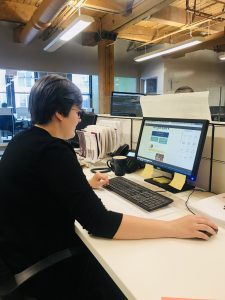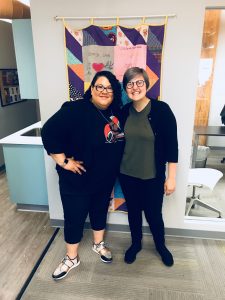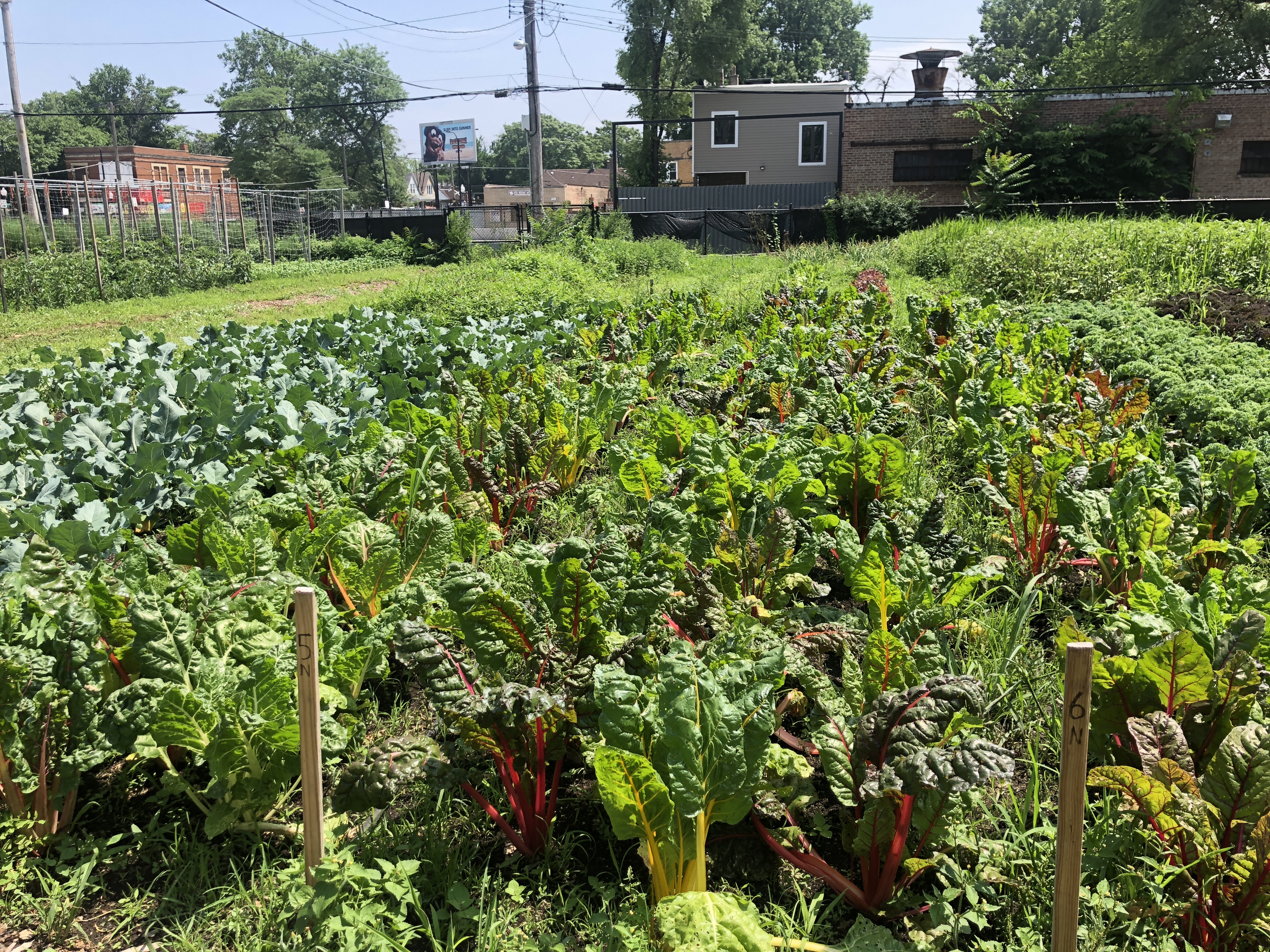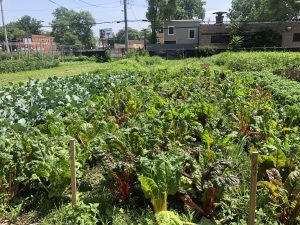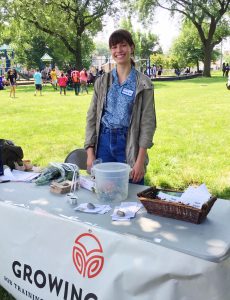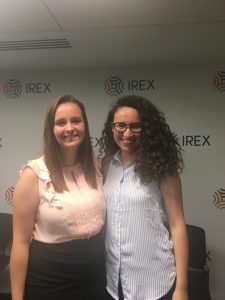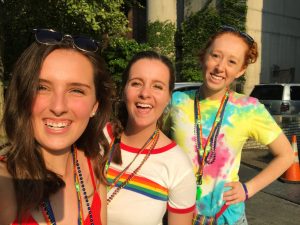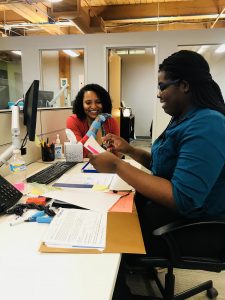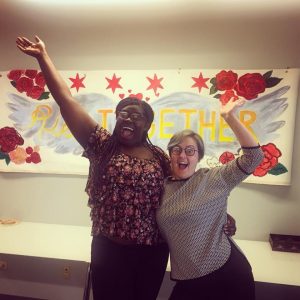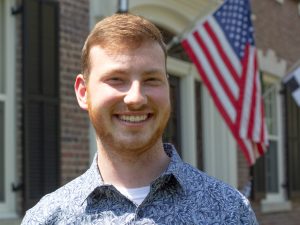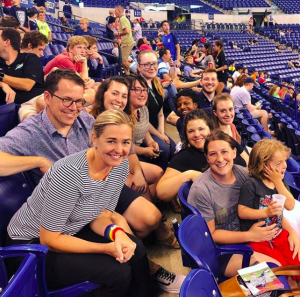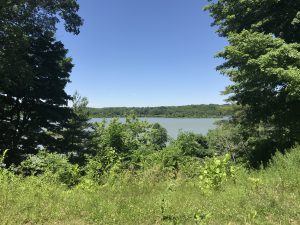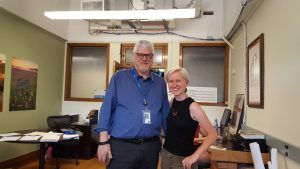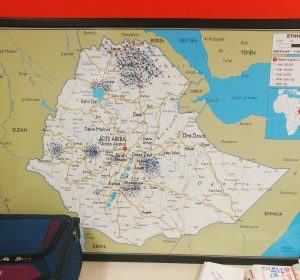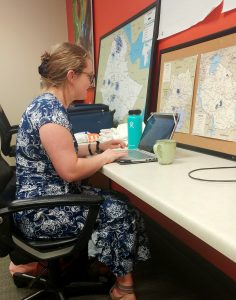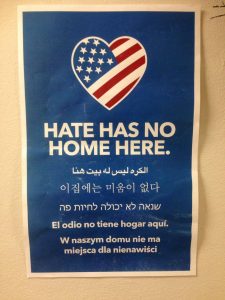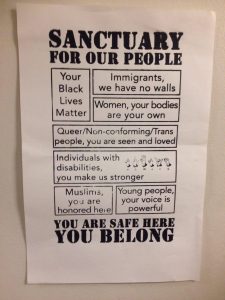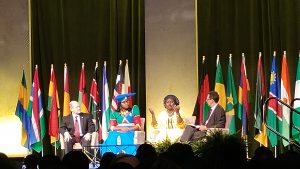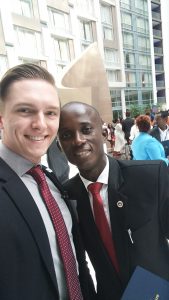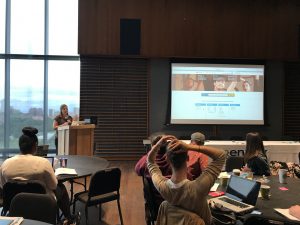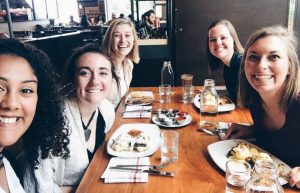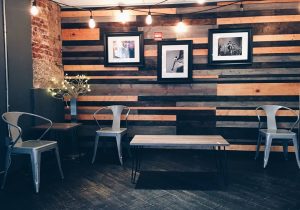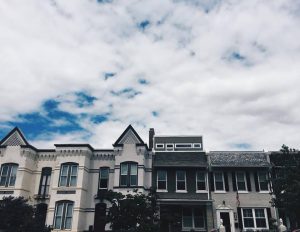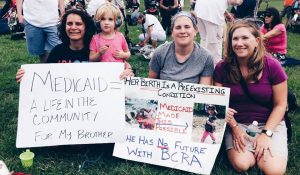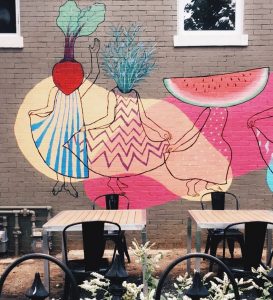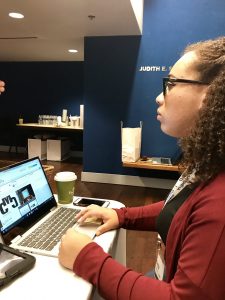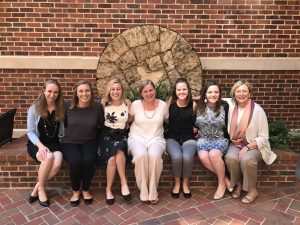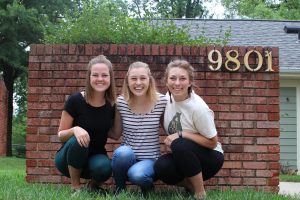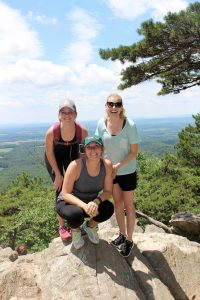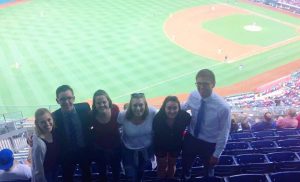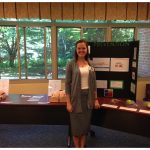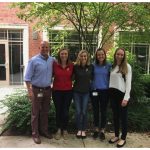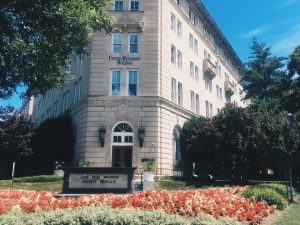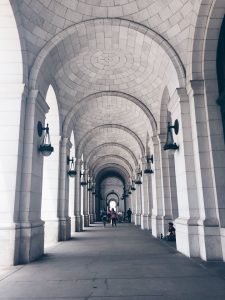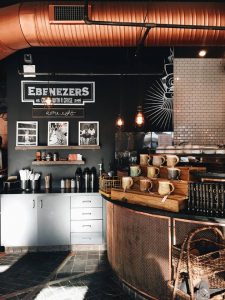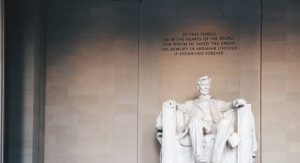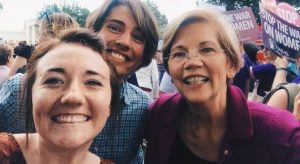As I reflect upon my experience with Ancilla Systems, I realize I am looking through different eyes than when I began the summer. When I entered as the development team’s intern, my position tasks included attending meetings, grant-writing, and email-sending. Of course these things were a part of my regular schedule, yet I find myself reminiscing experiences that were much more impactful.

One of my fondest memories includes interviewing Sisters who work or have worked in healthcare settings. Prior to our interviews, I was eager to meet the Sisters but I did not expect how much wisdom would be revealed during each conversation. Each Sister offered a very unique but consistent view of healthcare: one that involved ministry. I loved hearing the compassion for the patients they served and the miracles they achieved in their healthcare careers. Every sister who I interviewed spoke about her love for developing relationships with patients, a quality that is not always present among medical professionals. In each story, I could see that the Sisters cared for each patient’s spirit as well as his or her physical health.
As a privileged American citizen, I used to ignorantly assume that healthcare was universally available. I thought that if you could afford to live in America then you must be able to afford insurance! However, the United States spends the most amount of money on healthcare insurance and still reaps one of the poorest healthcare systems in the 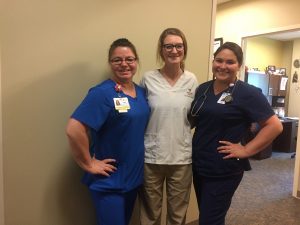 world. In many other countries, governments provide universal healthcare for all citizens, no matter their income because they view healthcare as a basic civil right. Within the American health system, many people are often denied the right to healthcare if they cannot afford insurance.
world. In many other countries, governments provide universal healthcare for all citizens, no matter their income because they view healthcare as a basic civil right. Within the American health system, many people are often denied the right to healthcare if they cannot afford insurance.
While I shadowed Sister Nora Hahn, PHJC, at St. Joseph’s clinic in Plymouth, IN, I saw that help can be given to clients who  may not have insurance. I witnessed medical personnel who overcame many obstacles to ensure that patients received much needed care. Many clients appeared at the clinic with diagnoses that required immediate intervention or long-term treatment. Without help from the wonderful staff, it is likely that many of the patients would experience a decline in health status simply due to lack of insurance.
may not have insurance. I witnessed medical personnel who overcame many obstacles to ensure that patients received much needed care. Many clients appeared at the clinic with diagnoses that required immediate intervention or long-term treatment. Without help from the wonderful staff, it is likely that many of the patients would experience a decline in health status simply due to lack of insurance.
Another memory that resonated with me the following weeks included holding the children currently housed at Nazareth Home (NH). During my NH volunteer orientation and tour, I witnessed each of the staff members mention “giving love to the children” or “spending time with the children.” Nazareth Home is not an ordinary foster home, it is a haven in which volunteers naturally deliver love to children who desperately need compassionate human contact. I could not believe the miracles that occurred in the short time I spent at the Home: the children were laughing, smiling, napping, eating, and playing in a safe environment where painful experiences, if even for a moment, were just memories.
Another memory I loved was attending the Sojourner Truth House walk held in both Donaldson and Gary, Indiana. One moment that stood out to me specifically was during the registration period in Gary: while many could not donate money (or could only donate very little), they still volunteered time and participation. I was amazed by the generosity exhibited by each member of the Walk and the joy that I witnessed at the registration table.
While I remember each of these moments, I contemplate my future in nursing since I have experienced the wonderful ministries of the Poor Handmaids. How can I effectively serve others with a humble spirit and full heart? How will I know what others need so that I can heal them? How can I maintain my relationship with Christ in a world that is, at times, hopeless? I decided to view these questions through the eyes of the Poor Handmaids of Jesus Christ.
Much of nursing education revolves around one crucial theory developed by Abraham Maslow, known as the Hierarchy of Needs. “Maslow’s Hierarchy” focuses on levels of personal needs that must be met sequentia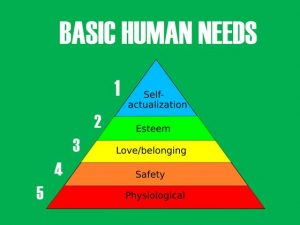 lly before a person can be his or her best or “actualized” self. While Maslow’s Hierarchy is a very fundamental structure, as times change, the means to meet those ends change as well. The Sisters have exhibited their ability to be dynamic over decades, during civil rights movements, ecosystem transitions, and ministry development. As a nurse, I will have to adapt to changing times as well. Health needs change, disease prominence changes, and my relationship with my patients will change. However, as a human being who naturally cares for others’ spiritual, emotional, and mental well-being, I must be well-equipped.
lly before a person can be his or her best or “actualized” self. While Maslow’s Hierarchy is a very fundamental structure, as times change, the means to meet those ends change as well. The Sisters have exhibited their ability to be dynamic over decades, during civil rights movements, ecosystem transitions, and ministry development. As a nurse, I will have to adapt to changing times as well. Health needs change, disease prominence changes, and my relationship with my patients will change. However, as a human being who naturally cares for others’ spiritual, emotional, and mental well-being, I must be well-equipped.
I have noticed that when the Sisters serve others, they address specific needs so that the poor, whoever it may be, can achieve personal goals and develop independence. I have focused on some reflection components that are necessary when serving others, and serving in the spirit of the Poor Handmaids.
Humility is a God-given value that is necessary when dedicating your life to serving others. First, I must address where my ego lies in God’s eyes. How can I effectively serve others if my pride eclipses the Holy Spirit’s presence in me? The Bible has much to say about pride but one verse in particular that speaks to me is Philippians 2:3 (NIV), “do nothing out of selfish ambition or vain conceit, rather, in humility value others above yourselves.” The Poor Handmaids do not just serve others, but they humbly love those whom they serve. Sisters have dedicated themselves wholeheartedly to a life of service, denying materialistic wealth and cherishing a life in Jesus’ wealth instead.
As I become wrapped up in my own plans for the future, I seem to have forgotten that God will always provide for me. Acquisition of materialistic items very easily hinders motivation to serve. For instance, how can I give freely to others if I am overly concerned about my own future financial security? Placing my faith in resources here on Earth will not allow me to reach others effectively, and attempting to serve others solely with worldly items will not help them either. While monetary resources will oftentimes be necessary when I serve others, it should not become central to my service. As I serve others, I remember that my service must include nurturing the non-physical well-being of othe rs, in addition to their physical state.
rs, in addition to their physical state.
This leads me to another focus: how can I identify what another person needs while I am serving others? This ties back to Maslow’s Hierarchy as it addresses how to love others who may not need something tangible like shelter or food. I often struggle with trying to satiate another person’s needs with something that can be physically given to them but in reality that person may just be yearning for an active, listening ear. When serving a friend, patient, or even complete stranger, focus on them in that moment. What is his or her greatest need right now? Oftentimes, words of advice or quick actions just become a haphazard bandaid solution in someone’s desperate time of need. Instead, give love in its multiple forms: time, patience, or just presence.
My final focus falls upon a relationship with Christ which is crucial to living a life of service; if Christ is love, how can I love others without loving Him? The Poor Handmaids exhibit this Christ-like love everyday through humility, presence, prayer, kindness, encouragement, and so much more. To serve like a Poor Handmaid means I must evaluate my relationship with Christ first. What am I doing daily to strengthen my faith and how can I ensure that Jesus’ Holy presence is with my during my service? Presence, patience, kindness, love, and many other attributes that the Sisters embody come only from a dear relationship with and constant focus on Christ.
